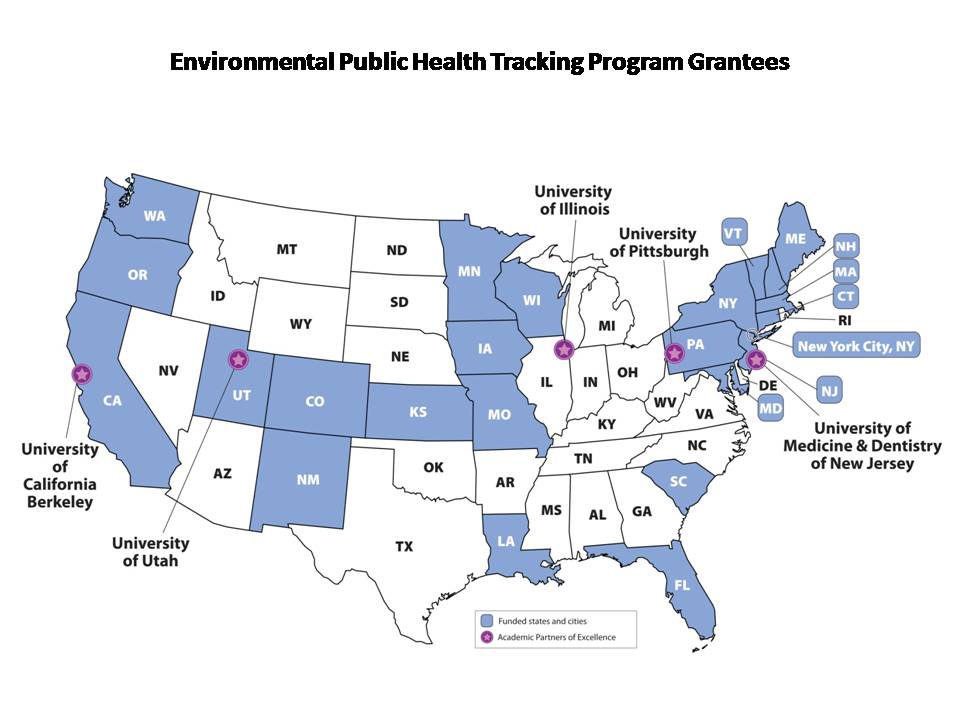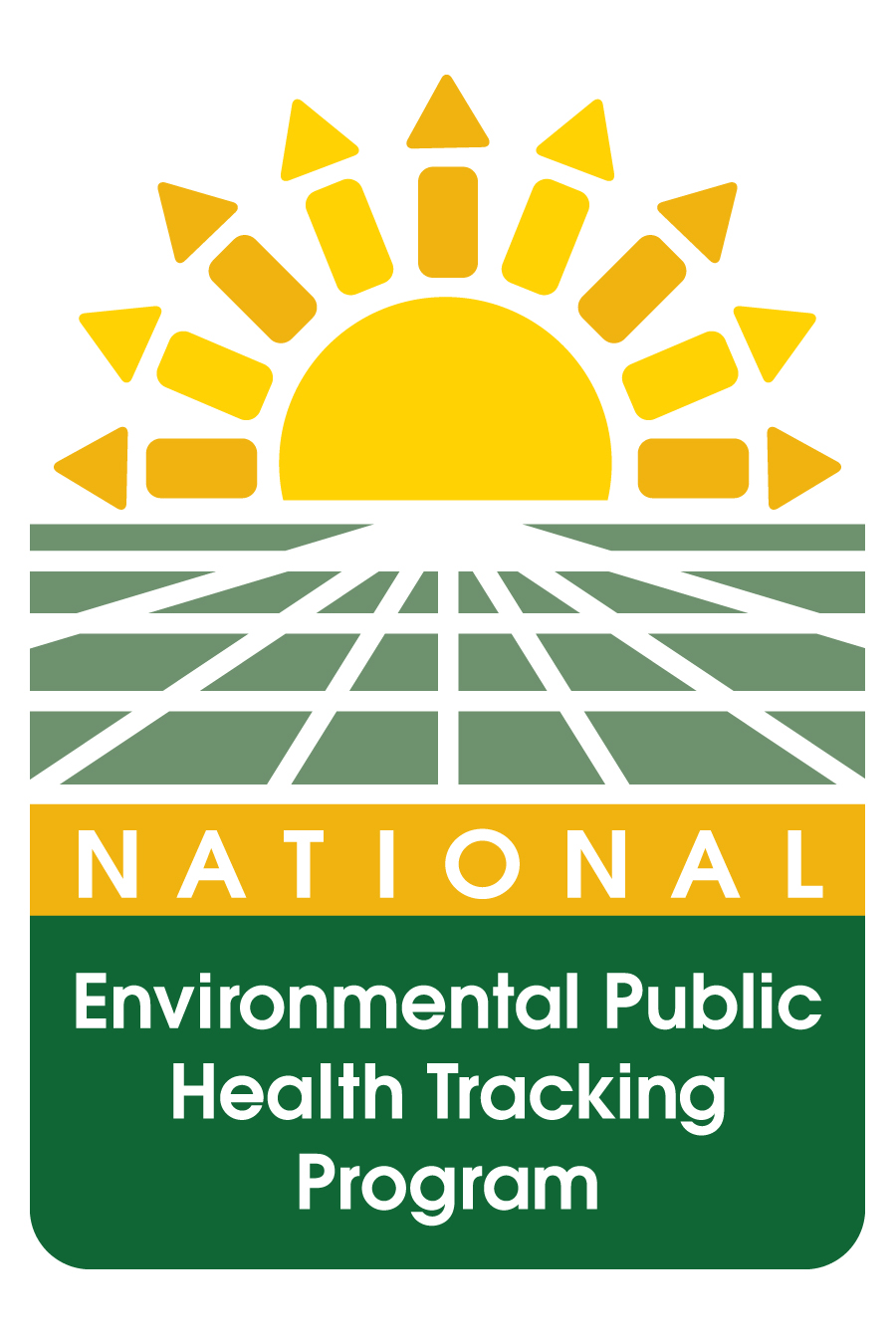EPHT Background and Acknowledgements
In 2000, the Pew Environmental Health Commission detailed an "environmental health
gap," a lack of basic information needed to document links between environmental
hazards and chronic disease. "When the Pew
Commission report came out, everyone- the press, the public, Congress- couldn't
believe that a Tracking Program didn't already exist," says Shelly Hearne, Founding
Executive Director for Trust for America's
Health. "While overt poisoning from environmental toxins has long been
recognized, the environmental links to a broad array of chronic diseases of uncertain
cause are unknown," concluded the report. To close this gap, the Pew report
called for integrating tracking systems for environmental hazards, bodily exposures,
and diseases; linking data to allow swift analysis; and using the results to prevent
disease and save lives."
The Pew report stimulated new thinking and specific proposals to overcome the split between environment and health. In response, Congress provided CDC with funds in 2002 to develop the National Environmental Public Health Tracking Network. CDC in turn asked scientists, managers, and policy specialists from two dozen state health and environmental departments, medical societies, non-governmental organizations, universities, and federal agencies to serve on work groups addressing Tracking issues. Four work groups were created to address the following topics: organization issues, information and technology tracking methods, tracking system needs assessment and how to provide tracking data to health agencies, elected officials, and the public. CDC then selected pilot programs around the country to build tracking capacity and demonstrate exactly what a tracking network could do. The knowledge gained would open new avenues of discovery, new paths of prevention, and new hope for long-term health for all Americans.
Currently, there are 23 state health departments, one local health department, and five universities that participate in the National Tracking Network.

 In 2002, the Centers for Disease Control and Prevention (CDC) established
its National
Environmental Public Health Tracking Network (Tracking Network).
The CDC was awarded funding which they then funded twenty state and local
health departments and three schools of public health.
Through these partnerships, (state, local and universities)
the CDC wanted to build environmental public health capacity, increase
collaboration between environmental and health agencies, identify and
evaluate environmental and health data systems, build partnerships with
nongovernmental organizations and communities, and develop model systems
linking environmental and health data.
In 2002, the Centers for Disease Control and Prevention (CDC) established
its National
Environmental Public Health Tracking Network (Tracking Network).
The CDC was awarded funding which they then funded twenty state and local
health departments and three schools of public health.
Through these partnerships, (state, local and universities)
the CDC wanted to build environmental public health capacity, increase
collaboration between environmental and health agencies, identify and
evaluate environmental and health data systems, build partnerships with
nongovernmental organizations and communities, and develop model systems
linking environmental and health data.
The Pew report stimulated new thinking and specific proposals to overcome the split between environment and health. In response, Congress provided CDC with funds in 2002 to develop the National Environmental Public Health Tracking Network. CDC in turn asked scientists, managers, and policy specialists from two dozen state health and environmental departments, medical societies, non-governmental organizations, universities, and federal agencies to serve on work groups addressing Tracking issues. Four work groups were created to address the following topics: organization issues, information and technology tracking methods, tracking system needs assessment and how to provide tracking data to health agencies, elected officials, and the public. CDC then selected pilot programs around the country to build tracking capacity and demonstrate exactly what a tracking network could do. The knowledge gained would open new avenues of discovery, new paths of prevention, and new hope for long-term health for all Americans.
Currently, there are 23 state health departments, one local health department, and five universities that participate in the National Tracking Network.
"When the Pew Commission report came out, everyone- the press, the public,
Congress- couldn't believe that a Tracking Program didn't already exist."
-Shelly Hearne, Dr.P.H.
Founding Executive Director, Trust for America's Health
Founding Executive Director, Trust for America's Health
National Environmental Public Health Tracking Network
 In 2002, the Centers for Disease Control and Prevention (CDC) established
its National
Environmental Public Health Tracking Network (Tracking Network).
The CDC was awarded funding which they then funded twenty state and local
health departments and three schools of public health.
Through these partnerships, (state, local and universities)
the CDC wanted to build environmental public health capacity, increase
collaboration between environmental and health agencies, identify and
evaluate environmental and health data systems, build partnerships with
nongovernmental organizations and communities, and develop model systems
linking environmental and health data.
In 2002, the Centers for Disease Control and Prevention (CDC) established
its National
Environmental Public Health Tracking Network (Tracking Network).
The CDC was awarded funding which they then funded twenty state and local
health departments and three schools of public health.
Through these partnerships, (state, local and universities)
the CDC wanted to build environmental public health capacity, increase
collaboration between environmental and health agencies, identify and
evaluate environmental and health data systems, build partnerships with
nongovernmental organizations and communities, and develop model systems
linking environmental and health data.





